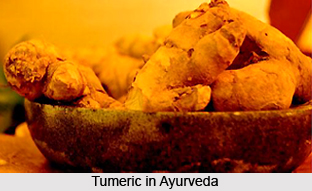 Mansa is the ability to contract when excited. It is responsible for all bodily movements. The energy required for the performance of the muscular tissue is obtained through metabolism of food substances. So for their prolonged activity, adequate blood circulation is essential for a constant supply of food materials and oxygen and removal of metabolic waste products.
Mansa is the ability to contract when excited. It is responsible for all bodily movements. The energy required for the performance of the muscular tissue is obtained through metabolism of food substances. So for their prolonged activity, adequate blood circulation is essential for a constant supply of food materials and oxygen and removal of metabolic waste products.
Mansa in human beings can be broadly classified into three types: skeletal muscle, cardiac muscle and visceral muscle. Before going into details, knowledge of the term muscle fibre is essential.
The term muscle fibre stands for a muscle cell due to its elongated shape, which is specially adopted for the contractile function. The skeletal muscle fibres are cylindrical with numerous nuclei. They have longitudinal and cross striations. The thickness of this muscle fibre varies with the degree of nourishment of the individual. The growth of the muscle on systematic exercise is due to increase in total fibre volume and improvement of blood supply and not due to increase of fibre number. This category of mansa is responsible for voluntary movement of the living system.
Mansa can exhibit rapid powerful contraction as well as slow sustained contraction. They are mainly attached to bones and the colour varies from red to white. The cardiac muscles, which are also striated, contract rhythmically and involuntarily. These muscles are not made up of one straight simple cylinder but they have got short cylindrical branches in all directions which ultimately form a three dimensional network. They are vital for maintaining the life process of the living system by assisting in the supply of nutrients oxygen and the removal of metabolic waste products. The cardiac muscle constitutes the muscular layer of the heart. These muscles are also present in small amounts in the great blood vessels ending in or opening from the heart. The visceral muscles are plain, non- striated and smooth. They are called non- striated because they have got no cross- striations. The contraction of this muscle is not controlled by volition and will. These muscles are present in all hollow viscera, like gastrointestinal tract, ducts of the glands, blood vessels, respiratory, urinogenital and lymphatic systems of the body. The automatic contraction of the visceral muscles facilitates the movements of the contents that are passing through these body parts. Those present in the skin are responsible for the erection of hairs.
The specialized function of mansa is to contract and thereby prurogenital movement. The muscular tissue also contributes to the body heat and fluid balance. Due to their contractile ability, muscles help in respiration and circulation. They are agents of the brain by means of which human beings retain their independence and give overt expression to their inner thoughts and feelings. The muscular tissue also assists in reacting to the threats of danger.
Summarily we can say that without the muscular tissue, human beings would have to lead a literally static life. The muscular tissue makes all types of locomotion and response possible and makes life dynamic and worth living.





